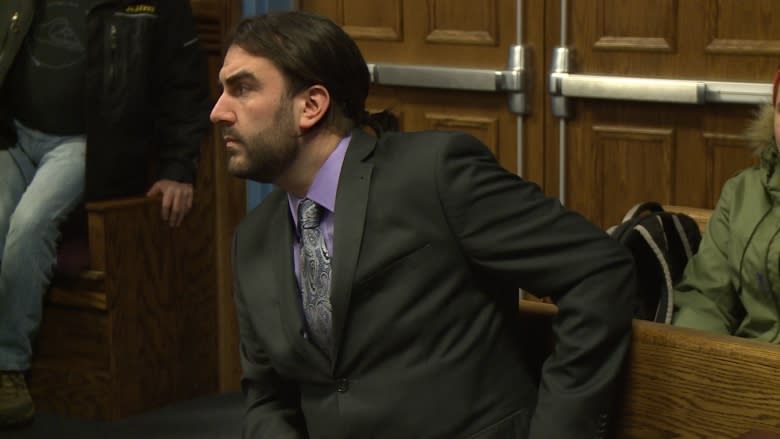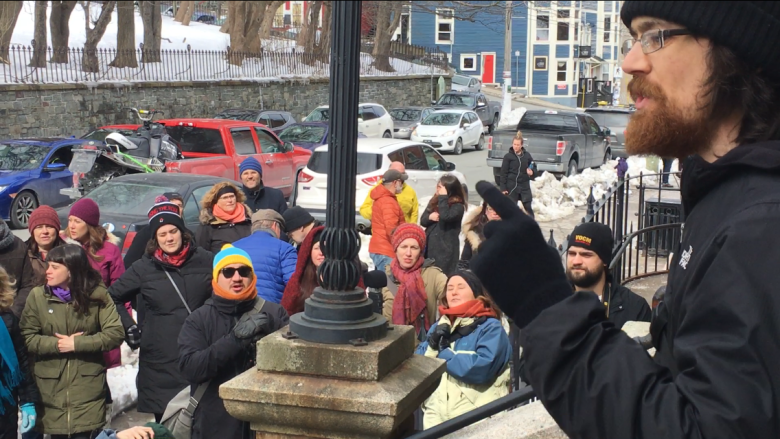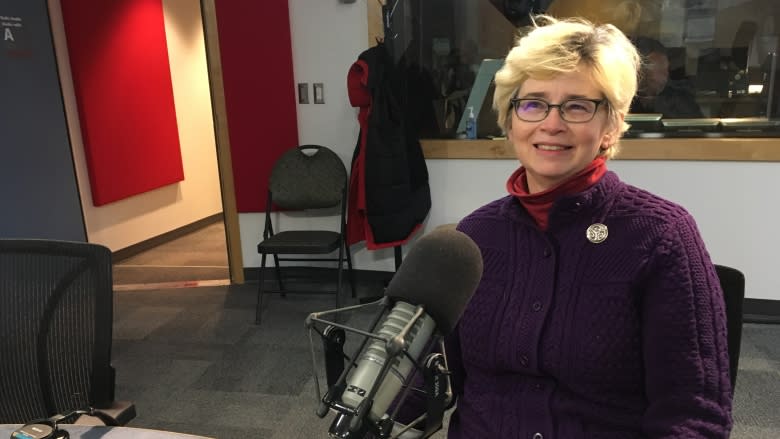Independent editor Justin Brake vows to fight despite Crown softening charges
The editor of the TheIndependent.ca who's facing charges stemming from his coverage of last year's Muskrat Falls protest says there may be a change in his charges, all while Canada's legal community closely watches to see how it all plays out.
Justin Brake has been charged with mischief and disobeying a court injunction, as well as a civil contempt charge, stemming from an October 2016 protest at the Muskrat Falls hydroelectric site he covered for the online publication.
Brake says he found out Monday the Crown is proceeding by summary conviction and not an indictment, which would mean a punishment that is less harsh.
Will still fight
Brake accompanied a group of protestors into a workers' camp at the Labrador hydroelectric site, where he published stories and did video live-streams for several days.
He eventually left the site voluntarily after seeing his name listed on an order to appear in court to answer to contempt charges, or face arrest.
Despite the Crown's push for a summary conviction, Brake says he will still fight the charges just as hard because of the implications the case had for press freedom in Canada and journalist rights.
"This is Canada and we are still making the argument that journalists shouldn't be punished or convicted in any way for doing important journalism," he told CBC on Tuesday.
Brake said the case is especially important given the implications for other protests in the future.
"When we look at the story of Muskrat Falls we know as well that there are other Indigenous-led resistances to major projects like oil pipelines and other things happening across the country," he said.
"So the implications of this more broadly is that if I'm convicted on any of these charges we could have a really dangerous precedent set in Canada."
Should charges be dropped?
Over the last few weeks, protests have been organized in support of Brake, with people arguing he was exercising the right of freedom of the press and that charges should be dropped.
During an interview with the St. John's Morning Show, Frances Knickle, the province's director of public prosecution, said while she can't comment on the specifics of Brake's case, she said no one is above the law, including journalists.
Knickle said police officers have a duty to arrest or charge someone they feel is breaking the law, and that the prosecution service often assists officers in that decision prior to the charged being laid. She said the service will determine whether there's a basis and evidence to proceed with charges— and if it is in the public interest to do so.
"The system is not perfect and mistakes will be made, but if a police officer believed that someone is engaged in criminal conduct they have a duty to act," she said.
She said while it is understandable that a journalist like Brake may be in a fluid situation during such a protest and may feel they need to stay in the action to get the story, it's no excuse if laws are actually being broken.
"We could all unknowingly engage in conduct that might otherwise turn out to be a violation of the law," she said.




